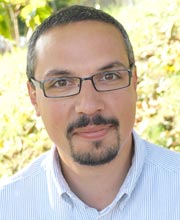The Andes present an ideal learning space to draw lessons on existing and emerging resilience challenges and opportunities. Andean people and societies have co-evolved with the unique high-mountain contexts in which they live, sometimes in altitudes of more than 3800 m. Although historical achievements including irrigation systems, domestication of cameloids (llama and alpaca) and crop preservation techniques facilitated the development of ancient civilisations in the Andes, modern Andean people face serious challenges in achieving food security and wellbeing.
A new Special Issue co-edited by Dr Giuseppe Feola and Dr Diana Sietz (Wageningen University) aims to improve our understanding of the key dynamics of socio-ecological systems that constrain or foster resilience in the rural Andes. The Special Issue, published in the journal Regional Environmental Change, comprises six papers that investigate three core features of resilience in a variety of socio-ecological systems: diversity, connectivity and development models. The novel insights into resilience dynamics include specific features related to the high-mountain contexts and socio-political tensions in the Andes. Future research can build on this knowledge to further not only resilience theory but also methodological approaches which reflect both case-specific and generic complexity.
Papers included in this Special Issue:
Sietz, D. and Feola, G. (2016) Resilience in the rural Andes: Critical dynamics, constraints and emerging opportunities. http://link.springer.com/article/10.1007/s10113-016-1053-9
Vallejo-Rojas, V., Ravera, F. and Rivera-Ferre, MG. (2016) Developing an integrated framework to assess agri-food systems and its application in the Ecuadorian Andes. http://link.springer.com/article/10.1007/s10113-015-0887-x
Doughty, CA. (2016) Building climate change resilience through local cooperation: a Peruvian Andes case study. http://link.springer.com/article/10.1007/s10113-015-0882-2
Zimmerer, K. and Rojas Vaca, H. (2016) Fine-grain spatial patterning and dynamics of land use and agrobiodiversity amid global changes in the Bolivian Andes. http://link.springer.com/article/10.1007/s10113-015-0897-8
Montaña, E., Diaz, H. and Hurlbert, M. (2016) Development, local livelihoods, and vulnerabilities to global environmental change in the South American Dry Andes. http://link.springer.com/article/10.1007/s10113-015-0888-9
Chelleri, L., Minucci, G. and Skrimizea, E. (2016) Does community resilience decrease social-ecological vulnerability? Adaptation pathways trade-off in the Bolivian Altiplano. http://link.springer.com/article/10.1007/s10113-016-1046-8
Easdale, MH., Aguiar, MR. and Paz, R. (2016) A social–ecological network analysis of Argentinean Andes transhumant pastoralism. http://link.springer.com/content/pdf/10.1007%2Fs10113-015-0917-8


